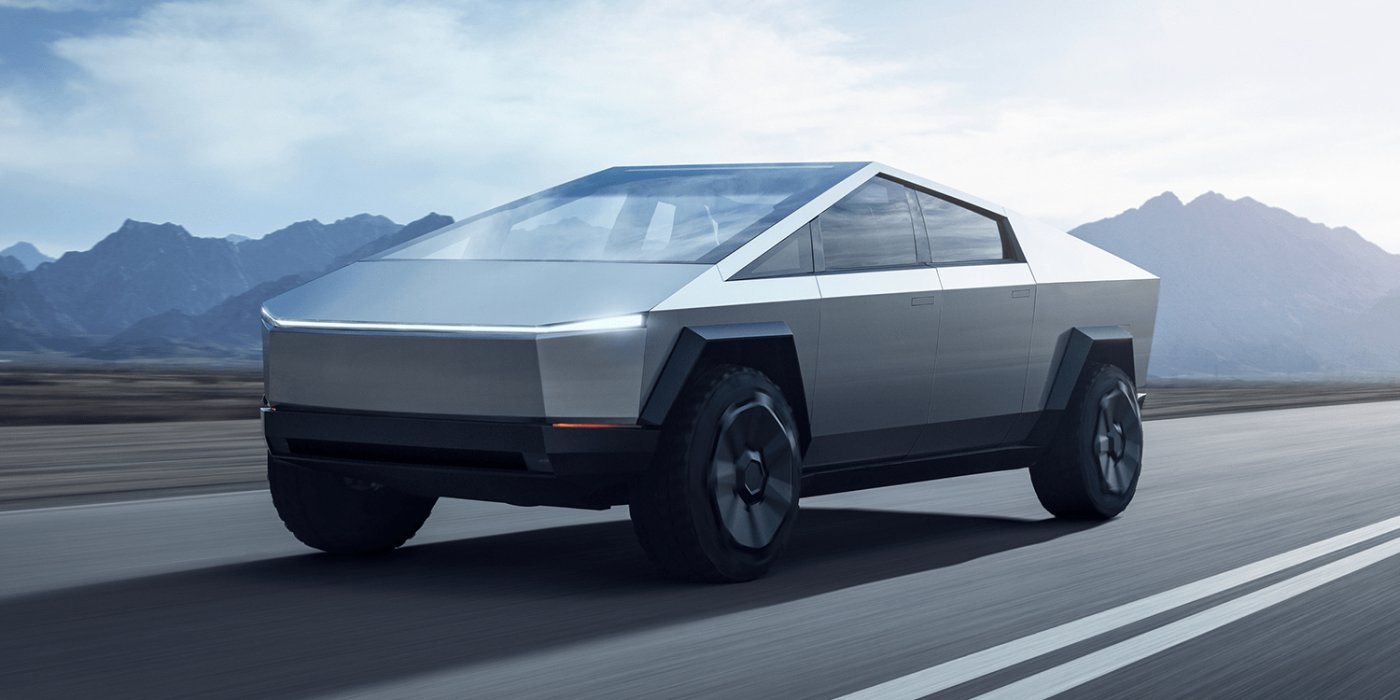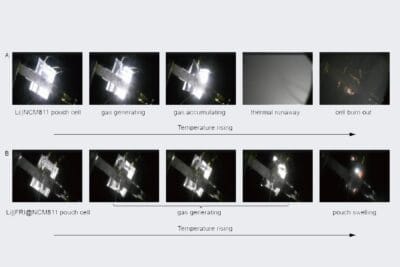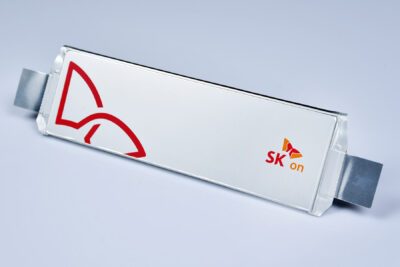LG & Panasonic rumoured to supply Tesla’s 4680 battery cells
According to an agency report, Panasonic and LG Energy Solution are to supply the 4680 cells for the Tesla Cybertruck. Apparently, this was not originally planned. Tesla is said to have not yet reached the targeted energy density with its own 4680 cells of the first generation.
Reuters reported this with reference to insiders. Tesla was able to dry-coat the anode, but is still struggling with problems in the dry-coating of the cathode, they say. And: Tesla plans to use a cathode with more than 90 per cent nickel in the next generation of 4680 cells (46 millimetres in diameter, 80 millimetres high). The recently concluded deal with the South Korean battery material manufacturer L&F is to serve this purpose.
The Cybertruck is expected to go into production in Texas before the end of 2023, as Tesla confirmed in January. However, the manufacturer has not yet shown a production version of the electric pickup truck. A final price has also not yet been named. Tesla presented the Cybertruck in November 2019 and has since postponed the start of production three times: First from late 2021 to late 2022, then to early 2023 and most recently to “early production” from mid-2023.
According to Reuters, battery cell logistics contributed to these delays. Tesla houses its own production of 4680-format cells in Fremont, with facilities to be built later in Texas, California, Nevada and Berlin. At the end of December, the company in Fremont said it achieved a production rate of 868,000 cells within a week – enough for around 1,000 electric cars. The manufacturer is building the 4680 round cells into the Model Y, for example, which is being built in Giga Texas. In parallel to the model with the 4680-based structural battery pack, however, Model Y variants with conventional battery packs and 2170 cells will continue to be built in Austin – as 4680 production is not sufficient to fill the vehicle production line.
The larger 4680 cells will later also be used in the Tesla Semi electric truck and the upcoming Roadster 2. For the production of these models, it will be important how quickly Tesla can scale its own 4680 cell production. Reuters reports, citing insiders, that the manufacturer is now securing itself through suppliers Panasonic and LGES – although it has been clear since the presentation of the 2020 cell plans that 4680 cells would also be sourced from suppliers – although it has remained open since then in what quantities this will happen.
Tesla has not yet published any details on the battery of the Cybertruck. The news agency now reports that explicitly the Cybertruck is to benefit from the supply of 4680 cells from Panasonic and LGES factories. However, it will take some time for the suppliers to ramp up production, it adds.
Tesla’s battery partner Panasonic is currently producing 4680 cells on a pilot line in Japan and has already delivered the first sample cells to Tesla. Series production is also to take place in North America – presumably in a new plant in Kansas, which is not due to be completed until March 2025, or in a project in Oklahoma that has not yet been officially confirmed. Reuters writes that Panasonic will, however, already start series production in the course of the current fiscal year, which ends in March 2024. This fits in with the fact that two additional production lines are being built at the Japanese pilot plant, which are scheduled to go into operation from April 2023.
LG Energy Solution announced the construction of a new production line at its Ochang plant in South Korea for 4680 round cells in mid-2022. The line is to have an annual production capacity of 9 GWh – and there were already indications at the time that LGES would apparently produce there for Tesla. According to the status at the time, production of the 4680 cells in Ochang was to start in the second half of 2023.





0 Comments